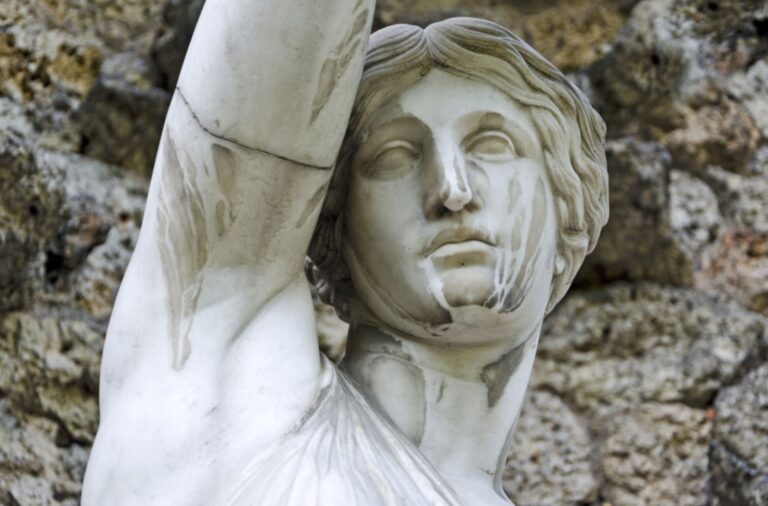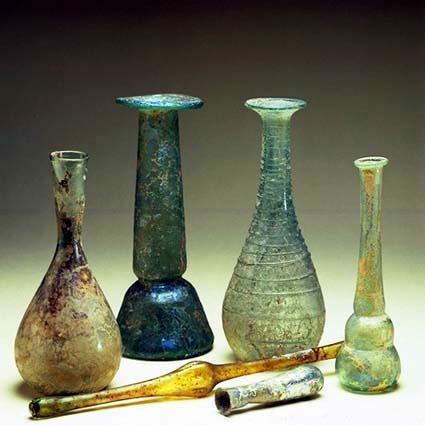
Perspiration and body odor are not new to the modern age. We often think that people in the past were just more accustomed to and more tolerant of certain odors than we are today. That is probably true, but a bad smell is still unpleasant. Our ancestors did not enjoy unpleasant smells such as body odor, and they, too, tried different methods to solve the problem.
Sweet-Smelling Egyptians

While the Sumers of 5,500 years ago left us some of the first instructions on how to overcome body odor, the Egyptians upped the ante by prescribing scented baths and special concoctions to be applied to the underarms in an attempt to disguise the natural odor resulting from bacteria in sweat. The Egyptian’s special deodorant recipe included a blend of citrus, myrrh, rose, and cinnamon. This exotic potion seemed to work pretty well in the hot, tropical climate of Northern Africa. Another more complicated recipe that included ostrich eggs and tortoise shell was used extensively on different parts of the body. The Egyptians also had the brilliant idea of inventing scented jewelry to mask bad odor. In addition, they were also the first to shave their armpits as they discovered that removing armpit hair would substantially diminish underarm odor.

Roman Personal Hygiene
Greeks and Romans adopted many Egyptian traditions: they bathed frequently, shaved their armpits, and applied perfume. During the Roman Empire, perfumes became an important luxury trade, and bathing daily became a custom–a custom that would be lost again until the 20th century. After a bath, Romans would anoint their bodies in scented oils. Roman citizens would also wear bracelets that held small vials of perfumes or scented oils–great for an emergency application or to disguise everyday assaults on the olfactory senses .

The most popular scents during the Roman era were jasmine, rose, lavender, and chamomile, though they also relied on dubious animal sources like whale sperm. To keep bad odors at bay during the day, scented powders were carried in small pouches, and fashionable clothing was made out of fabric steeped in these perfumes. Unfortunately, covering a bad smell with a perfume often results in a new, equally foul scent, and Romans were no strangers to the problem of noxious attempts to cover bad hygiene.
The Decline and Rise of Daily Hygiene and Odor Control
With the fall of the Roman Empire, the use of some of these odor-covering perfumes stopped being customary as part of daily hygiene and became only ritualistic, i.e. using incense only in a Catholic mass. The daily baths also disappeared and were picked up later on by the Turks, with their grand and ritualistic Turkish baths. It would take centuries before widespread acceptance of daily bathing and deodorants again became the norm. History can be smelly.